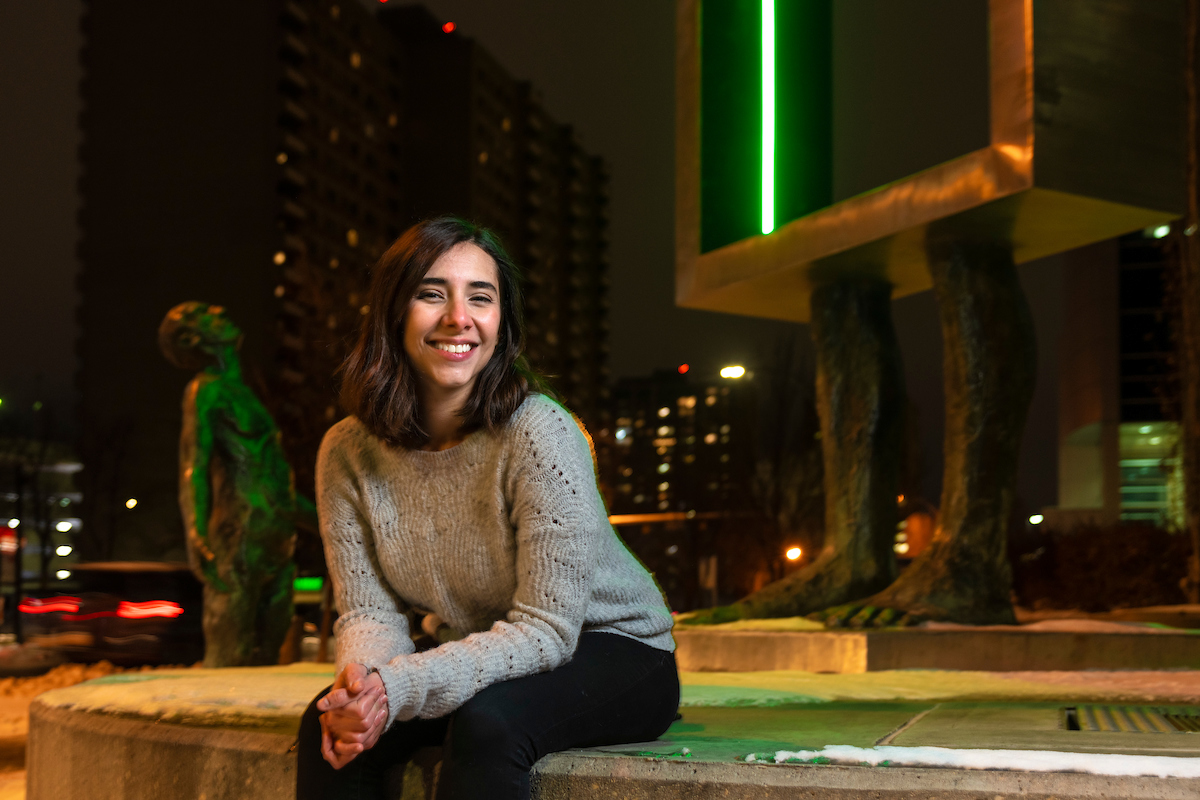Martha Ruiz’s studies at the University of Alberta changed her life but not in the way you might expect.
The new master’s grad in radiology and diagnostic imaging has already started a one-year fellowship at the Stollery Children’s Hospital, the next step in her quest to become a certified pediatric radiologist following six years of medical school, four years as a resident and two years in graduate school.
Ruiz, 31, began her medical career in Guadalajara and Mexico City before moving to Edmonton with her husband, a surgery PhD candidate, two years ago. She had earned a scholarship to fund her graduate studies from Mexico’s National Council on Science and Technology.

Already a qualified doctor, she felt confident going into her first exam in the U of A’s Faculty of Medicine & Dentistry. But she floundered and nearly failed, an experience that led to what she describes as an “existential crisis”—she sank into depression, suffering from the extreme self-doubt known as “imposter syndrome.”
“I was really hard on myself,” she said. “I know everyone says you have to love yourself, but we still struggle to compete, to get a better job, a bigger house, more things.
“I felt like a failure.”
Ruiz credits a U of A Counselling and Clinical Services mental health counsellor with helping her to reframe her entire outlook on life, switching from a focus on external achievements to internal motivation.
“Now I realize that I should be proud of intrinsic things like being open and my ability to make friends,” she said. “When you ask me who I look up to, it’s not the person with the most degrees or the biggest title, it’s the doctor here at the hospital who is really kind to everyone.”

Groundbreaking research
Ruiz said her new confidence allowed her to broaden her approach to school work from simply studying hard and memorizing facts to employing a more dynamic, critical thought process.
“I needed to develop that critical thinking capacity in order to do research,” she said.
Ruiz’s master’s thesis research focused on using ultrasound to predict and ultimately prevent complications for children who receive liver transplants. When surgeons attach the child’s veins to those of the donated organ, sometimes kinks or other damage can occur, slowing the flow of blood and putting the organ at risk. Ruiz found that when the blood flow is lower than 60 cm/second, the odds of having a complication were five times greater than in other transplant recipients.
She presented her findings on video at the university’s Three Minute Thesis (3MT) competition, in which she likened the process to drinking a smoothie with a straw.
Ruiz’s presentation earned her top prize at U of A’s 3MT competition and was a runner-up at the Western Canadian regional event.
When you ask me who I look up to, it’s not the person with the most degrees or the biggest title, it’s the doctor here at the hospital who is really kind to everyone.
Asking the right questions
Ruiz said the best research is built on asking good questions, and she is often inspired by gaps that come up when she is treating pediatric patients in clinical practice.
“I wonder, why hasn’t anyone answered this question yet?” she said. “That uncertainty makes patient management more difficult, but it presents opportunities to do research and build our knowledge.”
“Children are not just small adults—they have their own pathology.”
Ruiz is now working on practice guidelines for the best followup for children who swallow button batteries, which are found in watches and hearing aids.
“Toddlers put everything in their mouths, and when they ingest small batteries the consequences can be really disastrous because they can damage the esophagus,” Ruiz said.
Ruiz said her goal is to continue combining clinical practice with research as a pediatric radiologist.
“I used to do research projects because they were required for my studies,” she said. “Now I want to do them for fun and to follow my passion for answering questions.”